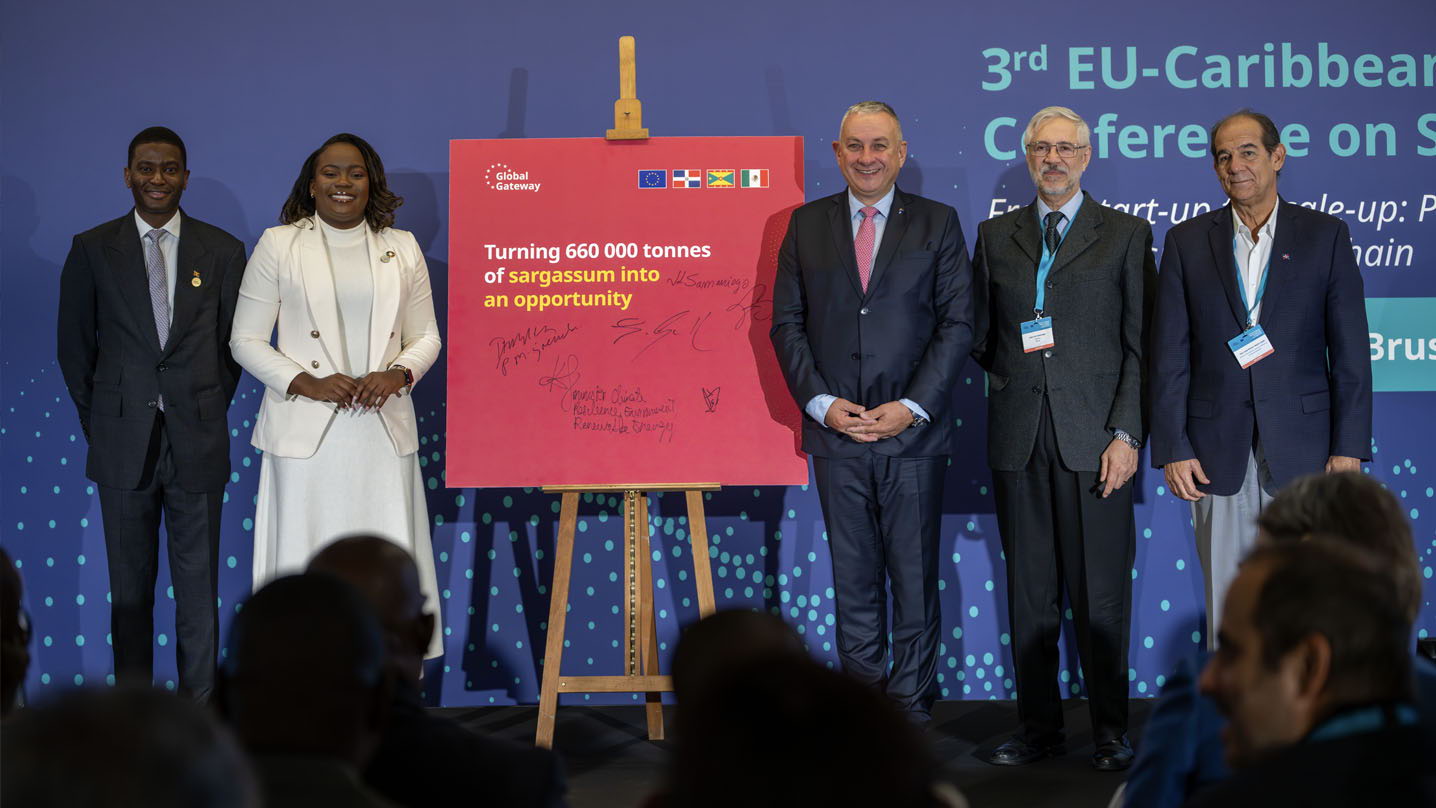
Global Gateway Forum: New value chains and new jobs in the Caribbean as the EU and Caribbean tackle the sargassum crisis together
Press Release Courtesy the European Union (EU)
For over a decade, extensive sargassum seaweed blooms have affected Caribbean coasts, disrupting fisheries, tourism, and local communities and causing multi-million dollar damage. Through the European Union’s (EU) Global Gateway Investment Agenda, the EU, Team Europe and Caribbean partners are working to turn this challenge into cleaner coastlines, new employment opportunities, and a boost for local business ventures.
The third EU-Caribbean Global Gateway Conference on Sargassum, which took place today, marks a shift from studies and pilot projects to real action. Governments, the private sector, academia, and international financiers came together to explore practical solutions for turning sargassum into economic opportunities and supporting its collection and management.
Commissioner for International Partnerships, Jozef Síkela, said: The sargassum crisis has been a persistent challenge for Caribbean communities, harming local livelihoods and causing costly damage to tourism, one of the region’s key economic sectors. But together, we are proving that this crisis can be turned into an opportunity - a source of jobs, innovation, and even clean energy across the region - by building value chains from sargassum
At the conference, Grenada, the Dominican Republic, and Mexico pledged to collect and process at least 660,000 tonnes of sargassum between 2026 and 2027:
- Grenada: 10,000 tonnes
- Dominican Republic: 150,000 tonnes
- Mexico: 500,000 tonnes
This announcement is the first step towards a regional market for sargassum-based products, backed by EU support to mobilise investment and ensure the right policy frameworks are in
place. The conference closed with the announcement of the fourth EU-Caribbean Global Gateway Conference on Sargassum in Mexico, ensuring the momentum and scaling operations continue across the region.
Background
Global Gateway Forum
The Global Gateway Forum brings together an assembly of government representatives from the European Union and across the globe, alongside key stakeholders from the private sector, civil society, thought leaders, financial institutions, and international organisations to promote global investment in infrastructure - hard and soft - to deliver on the SDGs and sustainable growth and resilience worldwide.
Global Gateway
Global Gateway is the EU's positive offer to reduce the worldwide investment disparity and boost smart, clean and secure connections in digital, energy and transport sectors, and to strengthen health, education and research systems.
The Global Gateway strategy embodies a Team Europe approach that brings together the European Union, EU Member States, and European development finance institutions. Together, we aim to mobilise up to €300 billion in public and private investments from 2021 to 2027, creating essential links rather than dependencies, and closing the global investment gap.
Sargassum
Since 2023, the EU has prioritised sargassum under Global Gateway, working with partners in the Caribbean basin to collect sargassum and design solutions that are both economically viable and environmentally sustainable. The EU acts as a convener to connect governments, investors, innovators and experts together to ensure the funding and know-how to take ideas forward. This work has created platforms such as national task forces in Grenada, Dominican Republic and Mexico to coordinate action, open expression of interest to attract practical business and research solutions, and feasibility studies to assess investment opportunities.
For More Information
Danny Moonie
OECS Communications Unit